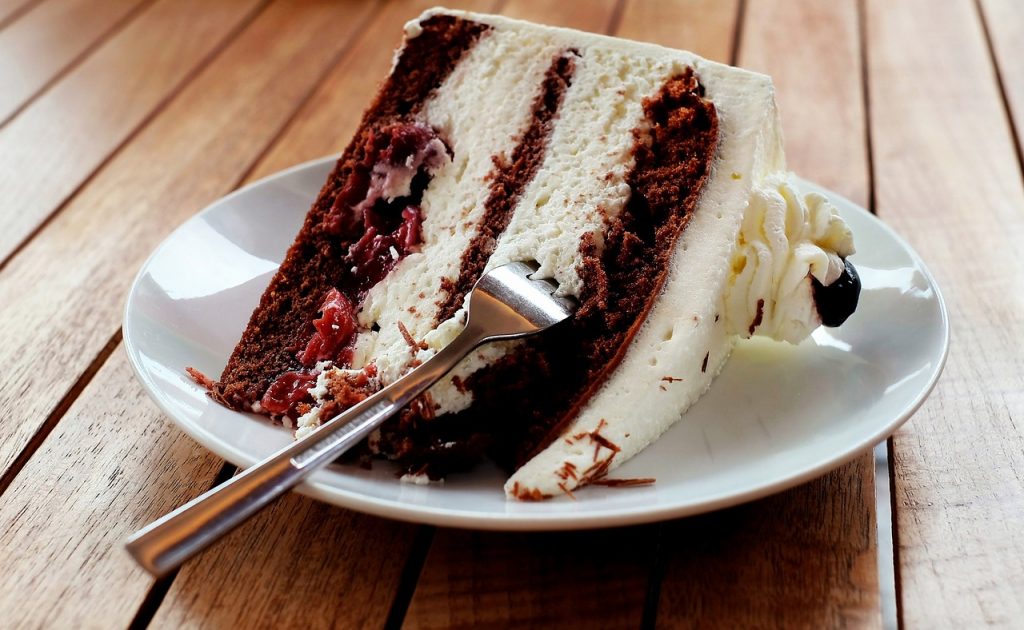 No discussion about the psychology of weight loss would be complete without consideration of the battle between an individual and their appetite. Perhaps the most daunting aspect of weight loss for most is the thought that they will develop a ravenous appetite as their lower their energy intake, and this will lead to temptation. Breaking their diet through overconsumption of foods to satisfy this increasing appetite is a common event, and when such an event occurs it is simply put down to a lack of will power on behalf of the individual. This lack of willpower meme is common is weight loss circles amongst mainstream proponents of the calorie counting fallacy, and is also used when individuals fail to perform ‘enough’ physical exercise. The truth is that labelling people lazy or greedy is easier and more convenient that admitting that their entire system of weight loss is based on pseudoscience and that effective weight loss is not caused by cutting energy intake or performing hours of running on a treadmill like a hamster.
No discussion about the psychology of weight loss would be complete without consideration of the battle between an individual and their appetite. Perhaps the most daunting aspect of weight loss for most is the thought that they will develop a ravenous appetite as their lower their energy intake, and this will lead to temptation. Breaking their diet through overconsumption of foods to satisfy this increasing appetite is a common event, and when such an event occurs it is simply put down to a lack of will power on behalf of the individual. This lack of willpower meme is common is weight loss circles amongst mainstream proponents of the calorie counting fallacy, and is also used when individuals fail to perform ‘enough’ physical exercise. The truth is that labelling people lazy or greedy is easier and more convenient that admitting that their entire system of weight loss is based on pseudoscience and that effective weight loss is not caused by cutting energy intake or performing hours of running on a treadmill like a hamster.

The battle between an individual and their appetite is possibly the most likely reason for failure on a traditional energy restricted diet. Once appetite is stimulated it is inevitable that a person will overeat at some point and this proves the uselessness of such diets.
One thing however is clear, the drive to eat when hungry is one of the most powerful drives in animals. Once hunger is established there are few who can resist the urge and it therefore becomes inevitable that hunger will lead to eating. For most, once hunger has been allowed to develop to a high level, small amounts of food will not satisfy it. Once a decision is made to satisfy this appetite and the guilt associated with this decision overcome or ignored, it is highly likely that the individual will overeat large amounts of food. What is worse, the drive to eat will push the individual towards the sorts of foods that are of low quality and energy dense, and this will generate further metabolic dysfunction upon their already existing condition. The guilt associated with such action will then become a problem for the individual because they may suffer associated feelings of worthlessness and self loathing. It is easy for snake oil salesmen to convince such individuals that if they try harder next time they may succeed.

Following a high quality diet for fat loss holds the advantage that ab ad libitum amount of food can be consumed. This means that appetite stimulation is never a problem and the individual can go about their lives without the fear of feeling ravenously hungry all the time.
Appetite is therefore the biggest problem associated with the traditional, and erroneous, theory of weight loss through calorie counting. The good news however is that this road need never be travelled during the course of successful long term weight loss. Losing body fat through adoption of a high quality diet and associated healthy lifestyle works for the simple reason that it restores the body to its previous insulin sensitive state, and this occurs without stimulation of the appetite. The desire to eat is therefore never overly stimulated, and because the appetite is controlled, food consumption remains sensible and modest for the needs of the body. Restoration of the sensitivity of the insulin receptor occurs when following a high quality diet, and this is important because insulin is one of the key determinants of satiety. A functioning insulin system can prevent wild swings in appetite and this allows a more balanced and appropriate energy intake that reduces the appeal of low quality energy rich junk food.
RdB
